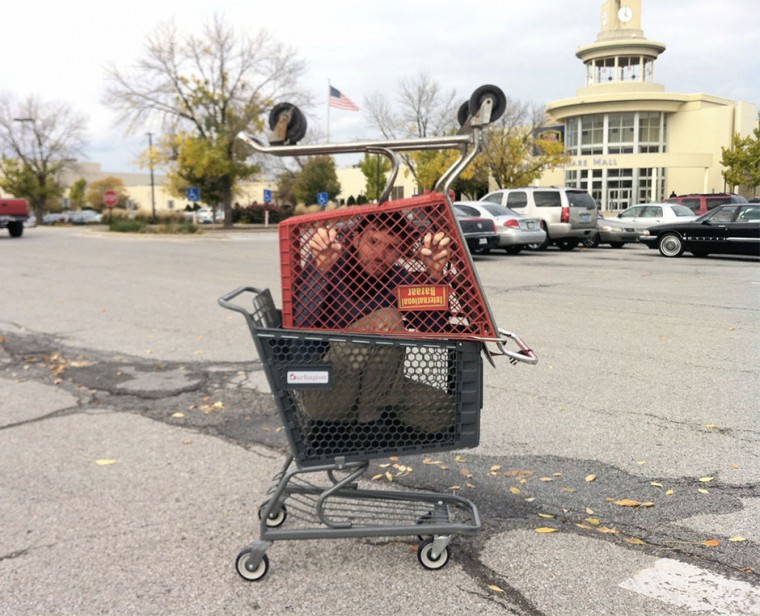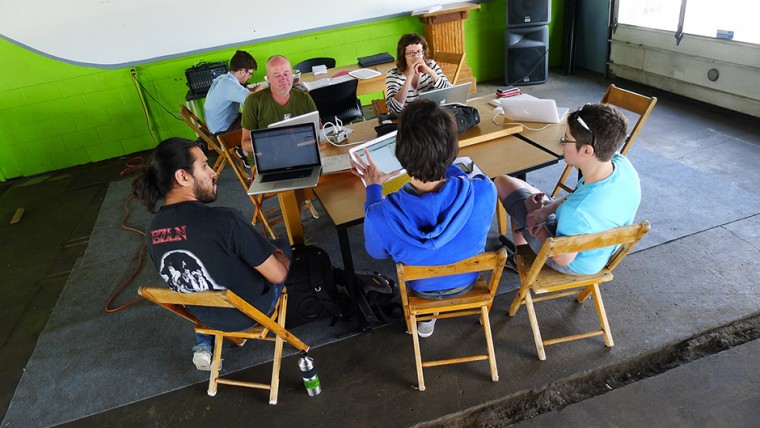Play the game created by Jim Walker and Florian Rivière here. Be sure to share your adventures on Twitter. There’s great documentation of what people are doing on The Art Assignment’s blog.
Urban creatives
by Cara Courage, Thinker in Residence
I’m back in the UK now after my near-month with Big Car and although Indy is around 4000 miles away, the place and people still feel close; I talked in my first blog about the ‘magic’ of the type of art work – social practice – that Big Car does and sat here at my desk now in Brighton, UK, it appears that a magic has left its mark on me.
My role with Big Car as Thinker in Residence gave me a special licence to get involved with the team but also remain somewhat separate to it too. In this role I was neither artist nor community member, but me, a researcher with a 15-year career in the arts, that was an extra pair of hands and someone to bounce ideas off.
This place I inhabited has led me on to think of the term ‘urban creatives’. Urban creatives is a term that I am increasingly using to describe that group of people that come together in a social practice art project to make it happen. This will be artists, community members, maybe also architects, planners, engineers… The point is though that in an urban creative group whoever is in it, all work in equal regard of each other’s skills – the artist is expert at being the artist, that planner at being the planner, and, as social practice artist Jeanne van Heeswijk states, the community is expert at being the community. Each can act on their expertise and each will also learn from the interactions with others.
This is certainly my experience of Big Car and Indy. During my time there I found myself in a group with all sorts of skills and backgrounds, where each was valued for what they bring and was encouraged to act on this. At the same time, the open dialogue was set to foster learning between ourselves. So whilst I saw people given the space and permission to be who they are I also saw people change as an outcome of this gathering of skills. I saw this spread out too from the local projects that Big Car is engaged in to the wider creative and cultural fabric of Indy, spreading through the networks, conversations, and institutions that comprise that scene.
In my first blog I posited that the magic in these projects came from them being fun and social and useful and I stand by that still now. I also said that it’s down to the people involved that make them magic and that’s certainly been underlined for me with Big Car – this is a very unique set of people without doubt. But to move this a little further, my initial unpacking of my thoughts from my month with Big Car and in Indy is that it’s not just the outcomes of what Big Car does but the how of what it does that makes it special. Like any special practice art, it is the varied elements of the process coming together in their myriad ways that makes these projects magic. It values people and brings out in them potential they may not have realised they had and puts this to use, gives it a social value.


